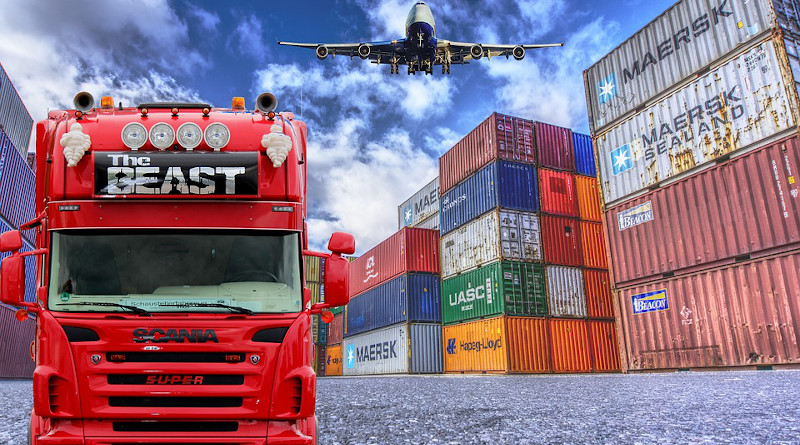First Movers Coalition Launched To Drive Demand For Zero Carbon Tech
Roughly half of the emission reductions needed to reach the 2050 climate goals rely on technologies in early development, demonstration or prototype phases. Accelerating innovation in this decade is critical to bring these technologies to market and make them cost-competitive.
To jumpstart this effort, the World Economic Forum, in partnership with US Special Presidential Envoy for Climate John Kerry, announced the First Movers Coalition – a new platform for companies to make purchasing commitments that create new market demand for low carbon technologies.
The commitments aim to be collectively significant enough to commercialize decarbonization technologies. The First Movers Coalition will create long-term impact by driving milestones this decade through investment into these technological solutions.
It will work across eight key sectors. Seven of these sectors — steel, cement, aluminum, chemicals, shipping, aviation, and trucking—account for more than a third of global carbon emissions, but do not have cost-competitive clean energy alternatives to fossil fuels. The eighth, direct air capture, could reduce atmospheric carbon-dioxide levels to help achieve net-zero global emissions but also requires technological innovation to reach commercial viability.
The First Movers Coalition provides opportunities for a wide range of companies to make commitments, take action and build the clean and profitable supply chains of the future. It also brings together a range of civil society and expert organizations to build momentum, complement ongoing efforts and input into the design of the initiative.
Børge Brende, President of the World Economic Forum, said: “Technology has given us the tools to reduce our emissions and build a stronger and more inclusive economy of the future. For innovators and investors to play their part in tackling the climate crisis, they need clear market demand. The First Movers Coalition will leverage the collective purchasing power of leading companies and drive the need for these technologies. I call on business leaders to work with us and be the role models keeping our climate goals alive.
John Kerry, US Special Presidential Envoy for Climate, said: “The First Movers Coalition is a platform for the world’s leading global companies to make purchasing commitments to create early markets for critical technologies needed to achieve net-zero by 2050. In this critical decade, we not only need to deploy as rapidly as possible existing clean energy technologies, such as wind turbines, solar panel, and battery storage, but also drive innovation for our long-term decarbonization goals.”
Phase 1 commitments launched
These commitments target new technologies and aim to create a market by 2030 that can be ramped up to achieve decarbonization in 2050. Founding members have made commitments in at least one of these sectors.
Aviation: Members commit to use emerging technologies including sustainable aviation fuels (SAF) with significant emissions reductions, electric, and hydrogen propulsion for air travel by 2030.
Airlines and air transport companies set a target of replacing at least 5% of conventional jet fuel demand with SAF that reduces life-cycle GHG emissions by 85% or more when compared with conventional jet fuel, and/or using zero-carbon emitting propulsion technologies by 2030;
Airfare and air freight purchasers set a target of replacing at least 5% of conventional jet fuel demand for air transport with SAF that reduce life-cycle GHG emissions by 85% or more when compared with conventional jet fuel, and/or zero-carbon emitting propulsion technologies by 2030 – in partnership with air transport operators.
Shipping: Members commit to use zero-emission fuels in new and in retrofitted zero-emission vessels by 2030. Carriers set a target that at least 5% of their deep-sea shipping will be powered by zero-emission fuels by 2030, enabled by ships capable of using zero-emission fuels. Cargo owners set a target that at least 10% of the volume of their goods shipped internationally will be on ships using zero-emission fuels by 2030, on the way to 100% by 2040.
Trucking: Members commit to purchase or contract zero-emission medium and heavy-duty vehicles by 2030. These can include battery or fuel-cell electric vehicles and also incorporate renewable sources of electricity and hydrogen for charging. Trucking owners and operators also set a target that at least 30% of their heavy-duty and 100% of their medium-duty truck purchases will be zero-emission trucks by 2030. Retailers & manufacturers set a target that they will require all of their trucking service providers to meet the trucking owners and operators’ commitment by 2030.
Steel: Members commit to purchasing volumes of near-zero emissions steel by 2030. The deployment of breakthrough iron and steelmaking technology is needed to deliver a net-zero steel sector with minimal residual emissions. These technologies include hydrogen direct reduction, carbon capture use and storage, and electrolysis-based production processes. Steel purchasers set a target that at least 10% of their annual steel procurement volumes by 2030 meet or exceed the First Movers Coalition definition for near-zero emissions steel.
The remaining sectoral commitments will launch in early 2022.

